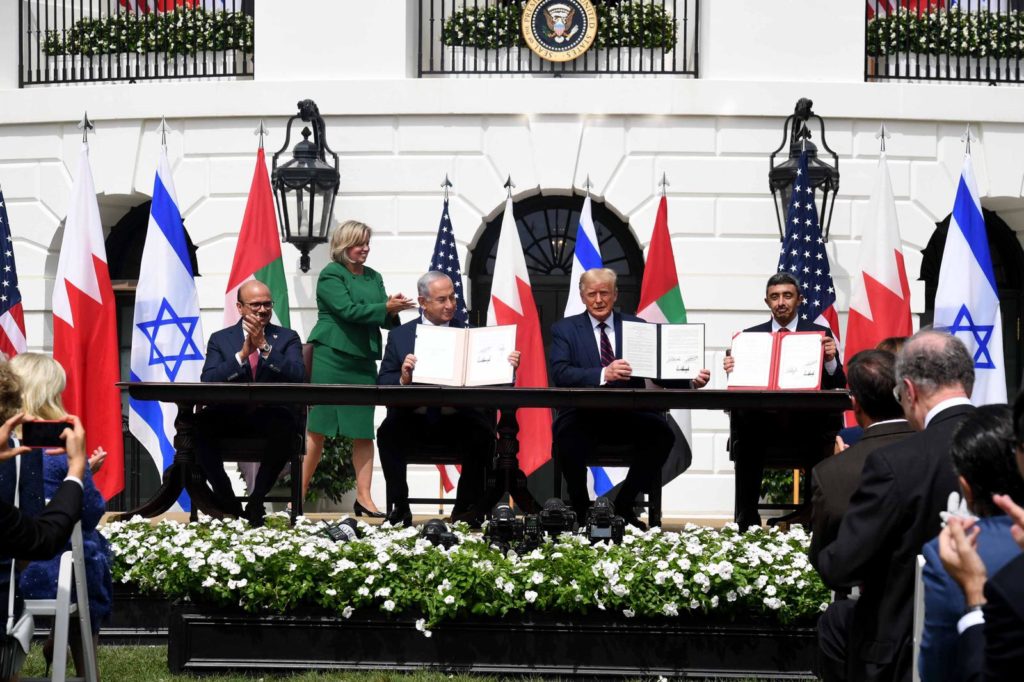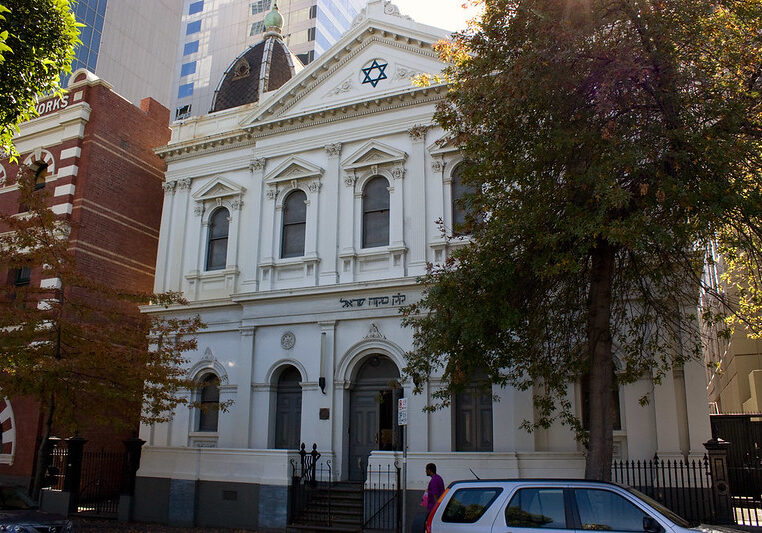Australia/Israel Review
Media Microscope: Arguing with Peace?
Oct 7, 2020 | Allon Lee

It’s hard to argue against peace – which is probably why regular critics of Israel mostly fell silent regarding the historic peace agreements between Israel and the UAE and Bahrain.
The Age, Sydney Morning Herald and Canberra Times made no editorial comment.
The Herald Sun (Sept. 17) editorialised that the agreements “recogni[se that] the status quo from the West Bank and Gaza is no longer supported.”
The Australian (Sept. 17) editorial said, “Arab nations have paid a high price for their self-inflicted isolation from Israel’s economy, which is the most dynamic in the region… The accord shows the extent to which the mood in the Middle East is changing. Even the 22-nation Arab League, often a hotbed of anti-Israel ferment, did not support a Palestinian demand to condemn the UAE’s diplomatic ties with Jerusalem.”
In the same edition, Wall Street Journal columnist and recent AIJAC guest Walter Russell Mead said Israel hasn’t enjoyed a “diplomatic month like this since” May 1948, when the US and the USSR recognised the Jewish State.
In the same paper, Australian foreign editor Greg Sheridan said, “If this had happened under anyone but Trump it would be hailed as a magnificent triumph of American statecraft and the relevant president would be on their way to a Nobel Peace Prize… Obama won…yet… his only big agreement [was] the disastrous deal that legitimised Iran’s nuclear program in exchange for a temporary promise not to produce nuclear weapons.”
New York Times columnist Thomas Friedman waxed lyrical in the Australian Financial Review (Sept. 17), saying, “I pray each night that Trump is defeated in November, but if he and [administration special envoy Jared] Kushner helped to nurture this deal on their way out the door, good for them.”
On Sept. 21, the same paper ran former Australian foreign minister Alexander Downer’s observation that “no answer” is the response Palestinian leaders give whenever asked what they want, and the failure of past peace efforts meant “the smart thing to do is to change the conversation.”
Speaking to ABC NewsRadio (Sept. 16), AIJAC’s Ahron Shapiro said Palestinian leaders “should be listening to… their Arab friends… telling them, please talk, let’s talk about a state that you are prepared to accept.”
Veteran Israeli commentator Ehud Yaari told ABC Radio National “Saturday Extra” (Sept. 19) that “Israel…will be much more careful…when it comes to dealing with the West Bank and the Palestinians in order not to endanger the newly established relations with the Arab world…Palestinian[s]…realise…they are going nowhere, that they are losing or already have lost the Arab world, and…have to recalculate their course.”
The Guardian Australia’s ran an op-ed from Palestinian writer Raja Shehadeh (Sept. 18) that defied the historical record with a claim that since June 1967 Israel has been “unwilling to recognise the Palestinian nation or cede control of… Palestinian territory… in order to make peace.”
On Sept. 1, the paper’s Rosie Scammell wrote, “Abu Dhabi claimed its deal stopped Israel from annexing parts of the occupied West Bank, although the unilateral step touted by Netanyahu was widely seen as already off the agenda.”
But AIJAC’s Sharyn Mittelman pointed out in the Daily Telegraph (Sept. 15), “In June, the UAE’s Ambassador to the US Yousef Al Otaiba wrote an unprecedented op-ed for Israel’s largest Hebrew-language newspaper Yediot Ahronot titled, ‘It’s Either Annexation or Normalisation.’”
In the Canberra Times (Sept. 16), the Zionist Federation of Australia’s Bren Carlill opined that “Obama’s nuclear deal… resulted in increased regional Iranian malfeasance, help[ing] pave the way to wider Arab-Israel peace.”
The paper ran Palestinian lobbyist George Browning’s response (Sept. 18), arguing that Palestinian “representatives are absent from the process,” so it doesn’t constitute genuine peace.
In the Melbourne Age (Sept. 15), AIJAC’s Dr. Colin Rubenstein argued, “The UAE and Bahrain normalisation deals with Israel are… the tip of a much wider regional iceberg of changing strategic thinking that signals a far-reaching re-alignment.”
On Sept. 17, the Nine newspapers ran Age senior writer Maher Mughrabi who said the deals were not historic breakthroughs but agreements between “despots” and “rich men”.
Academic Ghassan Hage (Age, Sept. 18) argued that a “US-Israeli-Saudi alliance…has sought to redirect regional focus on the ‘Iranian threat’, rather than the Palestinian question. This, however, is bound to increase the already large gap…in the Arab world between…the ruling elite and …the majority of the people.”
And yet, large-scale popular demonstrations against the deals have been absent in the Arab world.
Tags: Australia, Gulf states, Israel, Media/ Academia, UAE






